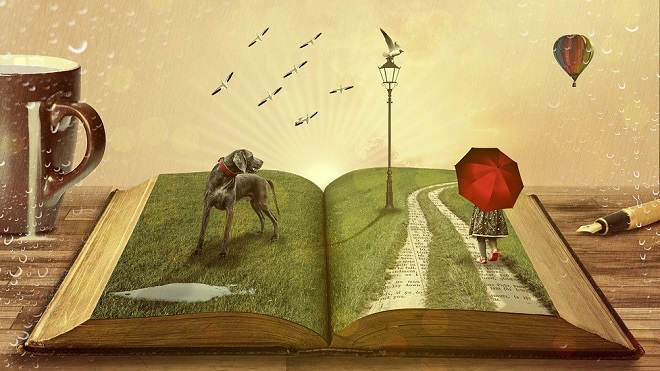How do you write your story?
eBook Guidance is reader-supported. When you buy through links on our site, we may earn an affiliate commission. As an Amazon Associate, I earn from qualifying purchases. Affiliate Disclosure

“When you write, you want to get rid of the world, do you not? Of course you do. When you're writing, you're creating your own worlds.” ~Stephen King
Do you enter into the story you write about, or do you just write the story as an outside observer?
When you write, you create a setting for your story from your imagination. The characters in your story can seem to take on a life of their own. Sometimes they even seem to be aware of their existence and will decide the direction of your story, if you let them. Many extroverted people are great in everyday conversation. They seem to magnetically attract everyone around them with the captivating story they are telling. They will embellish the facts to impress their listeners and invoke an emotional reaction in them, most often laughter.
People will laugh, have a good time, and talk about what a great storyteller they are, but what happens when you are a writer?
How often do you look into the eyes of an author, hear them speak, or experience their charisma as you read the words on the pages of their book?
Some authors will go to great lengths to hide their true identity. Joanne Rowling wrote the book, “Harry Potter.” The name J.K. Rowling was used because the publisher didn’t think boys would want to read a book written by a woman. Joanne agreed to use the initials J.K., representing her first name, and her grandmother’s name Kathleen as her pen name.
Although I believe she was coerced into using the name J.K. Rowling, the decision was made to hide her gender.
When writing a book, the only thing authors can rely on to grab their reader’s attention is their writing voice.


How do you build your writing voice?
When you write a story, where are you?
Are you sitting at your desk writing down the thoughts that dwell inside of your head, or are you immersed in your story so deeply that you are there with your characters?
There is a difference in these writing styles, and your readers will know the difference as well.
You created the environment your story takes place in, it is your home just as much as it is theirs. Take a walk around it, and explore the environment you have created more thoroughly.
Are you inside of a structure, or outside?
What do you see around you?
What sounds do you hear?
What do you smell?
Where and when does your story take place?
Does your story take place near factories or breweries with their distinct smell filling the air?
Maybe your story takes place in the country, and you can see rows of corn growing. On a ranch that keeps livestock, the smell of alfalfa growing will permeate your nose. The alfalfa is fed to livestock so it is manure you will smell as you get closer to the animals grazing there.
Perhaps your story takes place during the Black Plague, and the smell of death is all around you. The smell of death is something you will never forget. It cannot be described, it can only be experienced.
Experience the environment your characters live in. Observe the locals so you will have a better understanding of how they interact with each other.
Now I need you to do something for me that is really going to rattle your brain, and psychedelically get inside of your head. As you wander around the area you have created, I need you to locate and attempt to communicate with the main characters in your story.
You know where to find all of the characters in your story, you created them.
The only way to truly know them so you can write their story is to seek them out and make an effort to engage them in conversation. Your writing voice will resonate with your readers when you know your characters well.
If this is too much for your mind to handle than simply astral project there, and just observe them as a ghost.
Maybe that is part of your story. The people in your story are aware of a ghostly presence, some can sense this ghostly presence around them, and others claim to have seen it. That entity everyone is talking about is you, the author.
Wait a minute, that will be my next flash fiction story. Kindly disregard my previous statement.

Are you a pantser, or an outliner?
The outliner writer will create an outline of everything that will happen in their story before they begin writing. They then use the outline as a roadmap to create their story.
Pantsers write by the seat of their pants without an outline to guide their story. Even they don’t know what is going to happen until they are finished writing it.
“In my stories, I usually begin with a character who interests me and let him or her take me where he wants to go.” ~Peter Meinke
“I want to put a group of characters (perhaps a pair; perhaps even just one) in some sort of predicament and then watch them try to work themselves free. My job isn’t to help them work their way free, or manipulate them to safety — those are jobs which require the noisy jackhammer of plot — but to watch what happens and then write it down.” ~Stephen King
When you write as a pantser you immerse yourself into the story, and let your characters guide your story.
Give it a try, let go of trying to direct your story, and let your characters take on a life of their own.
Related Articles: Previous Article - Why Untidiness Hampers Your Creativity Next Article - 7 Common Excuses for Not Writing EBook Guidance is a participant in the Amazon Services LLC Associates Program, an affiliate advertising program designed to provide a means for sites to earn advertising fees by advertising and linking to Amazon.com.
Article Writing For Seo-optimization
10 Fail-Proof Strategies to Achieve your Writing Goals
How Do I Start Writing?
What Are Writing Rituals?
Come join us on Facebook Click here...
All links on this site are subject to being sponsored content for which we will receive financial compensation.

